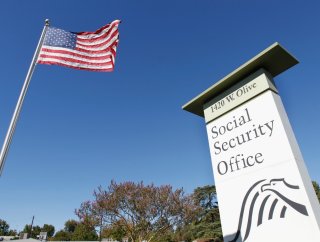Social Security Administration Marks 'Slam the Scam Day'
The Federal Trade Commission estimated that consumers lost $331 million due to scams in the first nine months of 2021.
The Social Security Administration (SSA) is working hard to stop scams, and has proclaimed March 10 “Slam the Scam Day.” It is part of the Federal Trade Commission’s (FTC) National Consumer Protection Week, which runs from March 6-12.
To mark the occasion, SSA’s Office of the Inspector General (SSA OIG) is sharing tips to avoid Social Security-related scams. The main goal is to spread awareness about what it calls “government imposter scams,” which are defined as “someone claims to be an SSA or another government employee, and may ask for personal information, demand payment, or make threats.”
In the first nine months of 2021, the FTC estimated that consumers lost $331 million due to scams, which can occur by telephone, email, text, or mail.
“As we continue working with our law enforcement partners and partners from the private sector to combat these sinister schemes, I urge consumers to simply hang up the phone, or delete suspicious texts and emails, without responding to the scammers,” Inspector General Gail Ennis said in the announcement. “That is the easiest and most effective way to avoid falling prey to these vicious scams.”
SSA warns that government officials do not do most of the things that scammers typically do, such as immediately demanding money, threatening arrest, promising to increase benefits in favor of immediate payment, asking for gift cards and debit cards, and offering fake documentation.
“We are concerned that fraudsters continue trying to trick people into providing personal information or money,” Kilolo Kijakazi, Acting Commissioner of Social Security, said in the statement. “I urge people to remain alert, hang up if a scammer calls, and ignore their attempts if you receive a suspicious email, text, or letter.”
This is the third Slam the Scam Day, and last year’s version was held on March 4.
Local law enforcement often warns of specific scams related to Social Security that have recently been attempted in a specific area. According to WUTR, one recently spotted in upstate New York involved gift cards. That story advised that citizens be “S.C.A.M. Smart”:
“Stop and take a breath. Scammers will put you on the spot and make you feel rushed. Collect your thoughts. If the call seems suspicious, it probably is. Act swiftly, disengage the caller, and hang up the phone. Make a report with local law enforcement.”
The AARP, meanwhile, warned that some scammers use “fear of missing out” as the hook for Social Security fraud. One example involves the scammer impersonating a Facebook friend and messaging friends about the money they recently received from Social Security.
Stephen Silver, a technology writer for The National Interest, is a journalist, essayist and film critic, who is also a contributor to The Philadelphia Inquirer, Philly Voice, Philadelphia Weekly, the Jewish Telegraphic Agency, Living Life Fearless, Backstage magazine, Broad Street Review and Splice Today. The co-founder of the Philadelphia Film Critics Circle, Stephen lives in suburban Philadelphia with his wife and two sons. Follow him on Twitter at @StephenSilver.
Image: Reuters.

